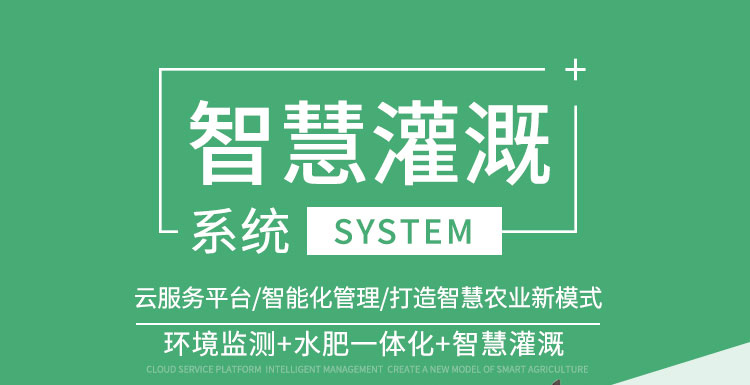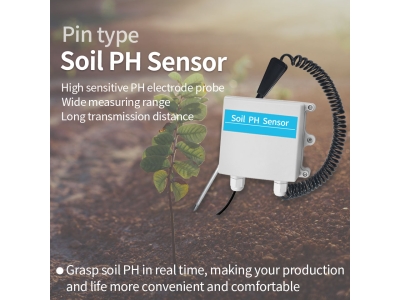The agricultural industry is facing unprecedented challenges in meeting the global demand for food while minimizing its environmental impact. As our understanding of the complexities of ecosystems deepens, innovative technologies are emerging to help farmers optimize their practices. Among these advancements, soil sensor systems are revolutionizing the way we perceive and manage agricultural land. This article explores the significance of soil sensor systems, their capabilities, and the benefits they bring to sustainable agriculture.

Understanding Soil Sensor Systems:
Soil sensor systems consist of a network of sensors strategically placed in the ground to measure crucial parameters such as moisture content, temperature, nutrient levels, pH, salinity, and compaction. These sensors employ various technologies, including capacitance, resistance, and spectroscopy, to collect data continuously. The collected data can be transmitted wirelessly or stored locally and accessed remotely for analysis and interpretation. By providing real-time insights into soil conditions, sensor systems enable farmers, researchers, and land managers to make data-driven decisions for optimal land use and resource allocation.
Real-Time Monitoring and Precision Agriculture:
A key strength of soil sensor systems lies in their ability to provide real-time monitoring of soil conditions. By continuously collecting data on parameters such as moisture content and nutrient levels, these systems offer farmers precise information about the state of their soil. This enables the implementation of precision agriculture techniques, where irrigation, fertilization, and other farming practices can be tailored to the specific needs of each crop or field. Real-time monitoring also allows for early detection of issues such as drought stress, nutrient deficiencies, or soil erosion, facilitating prompt interventions to mitigate potential yield losses.
Water Management and Conservation:
Effective water management is vital for sustainable agriculture, particularly in regions experiencing water scarcity. Soil sensor systems play a crucial role in water management by providing accurate and timely data on soil moisture levels. By monitoring soil moisture content at different depths, farmers can optimize irrigation practices, ensuring that crops receive the right amount of water at the right time. This not only improves water use efficiency but also prevents over-irrigation, which can lead to waterlogging and nutrient leaching. By conserving water resources through precision irrigation, soil sensor systems contribute to long-term sustainability in agriculture.
Nutrient Management and Fertilizer Optimization:
Optimal nutrient management is key to maximizing crop productivity while minimizing environmental impacts. Soil sensor systems enable precise monitoring of nutrient levels in the soil, allowing farmers to tailor fertilizer application rates to meet the specific needs of their crops. By avoiding over-application, nutrient losses to the environment, such as leaching or runoff, can be minimized. Additionally, these systems can detect nutrient imbalances or deficiencies, allowing for timely corrective measures. By optimizing nutrient management, soil sensor systems promote sustainability in agriculture by reducing environmental pollution and improving fertilizer use efficiency.
Soil Health Assessment and Conservation:
Soil health is critical for sustainable land management, as it directly affects crop productivity, biodiversity, and ecosystem services. Soil sensor systems provide valuable insights into soil health indicators such as pH, organic matter content, and compaction levels. By continuously monitoring these parameters, land managers can assess soil quality and identify potential degradation or improvement areas. This knowledge allows for targeted soil conservation practices, such as cover cropping, crop rotation, or reduced tillage, to be implemented. By enhancing soil health and structure, soil sensor systems contribute to the long-term sustainability and resilience of agricultural systems.
Climate Change Adaptation:
Climate change poses significant challenges to agriculture, including increased frequency of extreme weather events and shifts in precipitation patterns. Soil sensor systems can assist in climate change adaptation by monitoring soil conditions that directly influence crop resilience and productivity. For instance, the ability to continuously measure soil moisture content helps identify drought-prone areas and adjust irrigation strategies accordingly. By providing real-time data on temperature and other climate-related parameters, these systems enable farmers to anticipate and respond to changing environmental conditions, improving their capacity to adapt to a changing climate.
Conclusion:
Soil sensor systems represent a significant advancement in soil monitoring and land management practices. By providing real-time, continuous data on soil conditions, these systems empower farmers, researchers, and land managers to make informed decisions for sustainable land use and resource management. The ability to implement precision agriculture techniques, optimize water and nutrient management, assess soil health, and adapt to climate change contributes to enhanced agricultural productivity, environmental stewardship, and long-term sustainability. Unlocking nature's secrets through soil sensor systems is a crucial step towards building resilient and productive agricultural systems for future generations.






